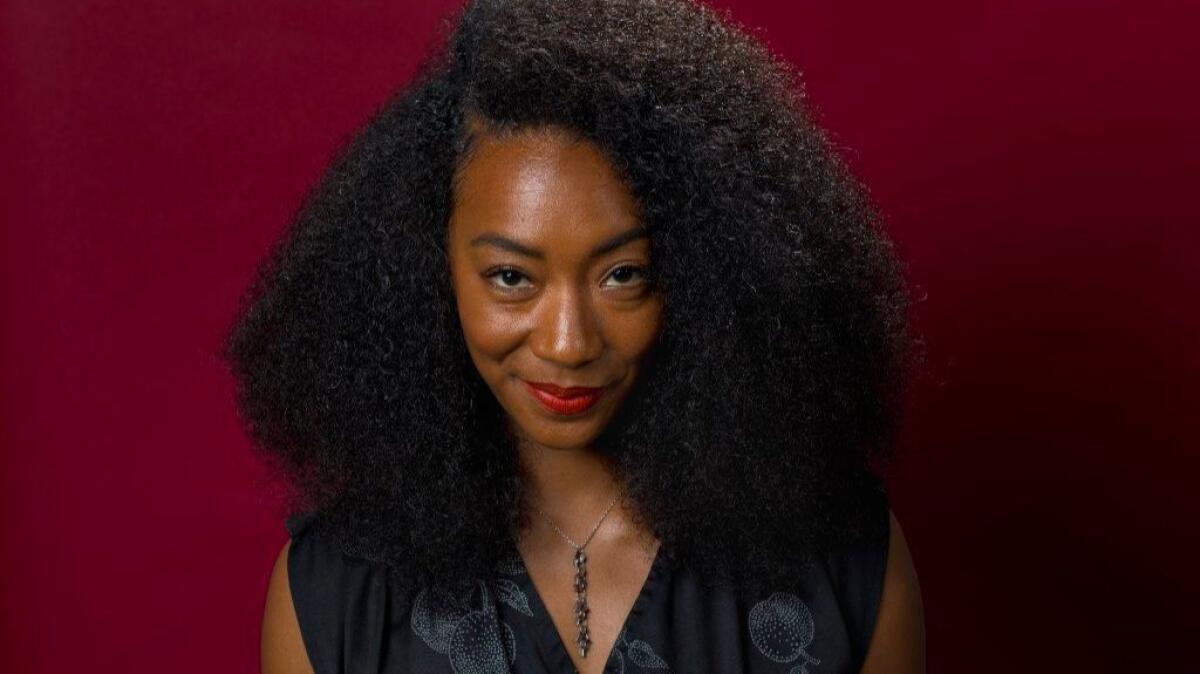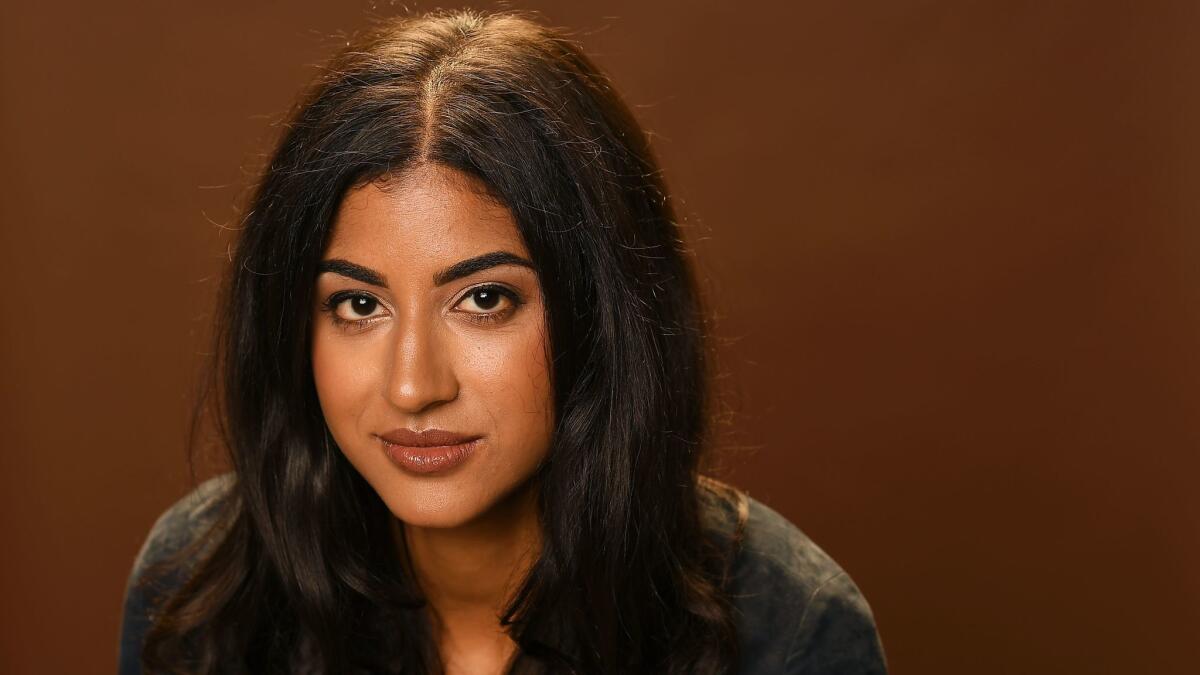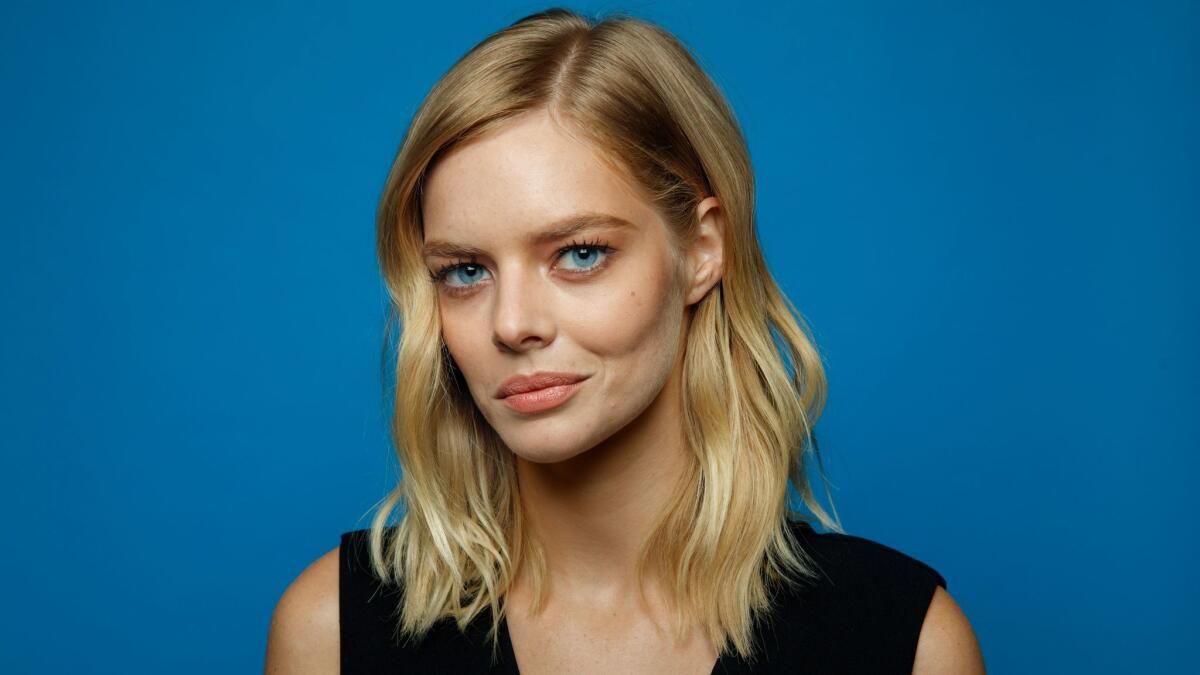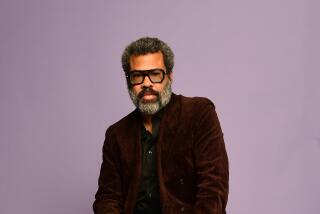They don’t have big roles but these three actresses come through with scene-stealing moments

Every year, Hollywood assembles a series of awards shows to bestow prizes on a number of leading and supporting actors. And every year, the Envelope takes note of several actors who may have been on-screen for only a few minutes, but whose performances jumped off the screen. We singled out three actresses this year, and it’s no surprise that they were in three of the year’s most acclaimed films.
Betty Gabriel: Georgina, “Get Out”
“Get Out,” Jordan Peele’s hit horror film, is chock-full of alarming moments, but few match the encounter between boyfriend Chris (Daniel Kaluuya) and family maid/Georgina in the middle of the film. Apologizing stiffly for unplugging his “cellular” phone, she starts crying as she talks about how much she loves her job. The two parts of her being – old white grandmother, young black victim -- battle it out on her face.
WATCH: Video Q&A’s from this season’s hottest contenders »
To research the concept of being trapped, Betty Gabriel listened to author Martin Pistorius talk about suffering from locked-in syndrome and being trapped in his body, unable to move or communicate for 12 years.
She also found inspiration on-screen. “I went back and watched a lot of really old horror movies in preparation. And when I saw ‘Bride of Frankenstein,’ I was like, ‘Oh, I’m feeling everything she’s doing.’ She is this creation, this experiment, and perhaps not all the wires were connected quite right.” So she gave Georgina some tiny physical glitches. Gabriel was a dancer before attending Juilliard to study acting. “I really loved exploring the physicality of her,” she says.
“It’s such an absurd premise, it’s so out there, that I felt the freedom to explore in any kind of way.” But at the same time, the story was deadly serious. “At the root of it was the tragically horrific reality that this is a person completely and utterly lost. A huge part of her was taken out and what’s left is fighting to come to and connect with Chris. That definitely grounds this into a very dark reality of being imprisoned and enslaved.”
Vella Lovell: Khadija, “The Big Sick”

“The Big Sick” centers on the true love story between Emily V. Gordon and Kumail Nanjiani, who plays himself in the movie. (Gordon is played by Zoe Kazan.) Vella Lovell plays Khadija, one of a string of women Kumail’s mother presents to him in an effort to find him a prospective Pakistani bride. The scenes are funny, at first, but Khadija proves to be nobody’s punchline. When Kumail finally admits he’s not interested in an arranged marriage, she lights into him in a small but fervent explosion of anguish and anger, turning the tables on Kumail -- and the audience’s expectations.
“It felt so human to me, and so clear,” says Lovell of playing the scene. “Everyone has experienced those emotions of being rejected, being embarrassed, humiliated, but also, ‘Then why did you waste my time?’”
She gives props to the writers for letting Khadija add another layer to their film. “By creating this character that was so three-dimensional, they complicated their love story.”
Lovell, who costars on “Crazy Ex-Girlfriend,” is often mistaken for South Asian. “This isn’t the first time I’ve played a different ethnicity than I am,” says Lovell, who calls herself mixed (“My father is African American and my mom is a big mutt herself -- Eastern European and European and Moroccan. I just got my 23 and Me [DNA test] and I’m kind of like the world”). “Ultimately, I get to step into different shoes in a way that I do feel lucky to be able to do, especially when it meant that I got to be in the same room with all of those ‘Big Sick’ people.”
She was on set for only two days of shooting, and didn’t even realize the scene’s impact until she watched the completed film. Kumail has to grow up, “and it weirdly starts with that scene.”
Samara Weaving: Penelope, “Three Billboards Outside of Ebbing, Missouri”

Nobody is safe from Frances McDormand as Mildred in “Three Billboards.” Her abusive ex-husband, played by John Hawkes, is a deserving target of her venom. His 19-year-old girlfriend, Penelope, played by Samara Weaving, takes a load of collateral damage as well. Yet she chooses to see the best in everyone anyway.
Weaving waxes rapturous over writer/director Martin McDonagh’s ability to convey character. “His writing is just so good, the words pop off the page and suddenly you’re a completely different person.”
But in the audition, she still wasn’t quite sure how to play Penelope. “She was sort of pleading, ‘Like me, like me;’ she just wanted to be validated by everyone. She’s so wide-eyed and taking everything in, but also can’t quite see the big picture.” So the actress took on a perpetually wide-eyed look to match.
She was so good at being a naïf, McDonagh asked the blond actress to dye her hair brown. “And I think that makes it funnier,” she says. “There’s something endearing about her” as a brunette. “You felt a lot of empathy for her rather than judging her. I don’t know if it’s the hair or the writing.”
Weaving, who has been acting since she was 14 in her native Australia, is also on screen playing the eponymous role in “The Babysitter,” and costars on the HBO series “SMILF.” But she has a special place in her heart for Penelope. “She’s kind of deep in this whimsical naïve way. She teaches John’s character life lessons, which I think is really sweet.”
More to Read
From the Oscars to the Emmys.
Get the Envelope newsletter for exclusive awards season coverage, behind-the-scenes stories from the Envelope podcast and columnist Glenn Whipp’s must-read analysis.
You may occasionally receive promotional content from the Los Angeles Times.







